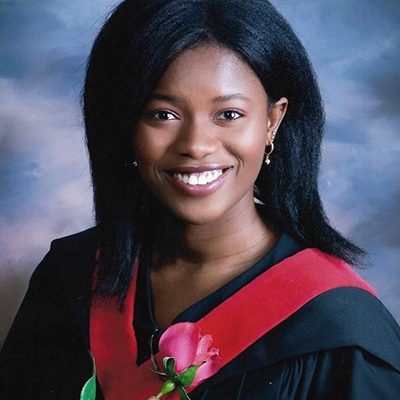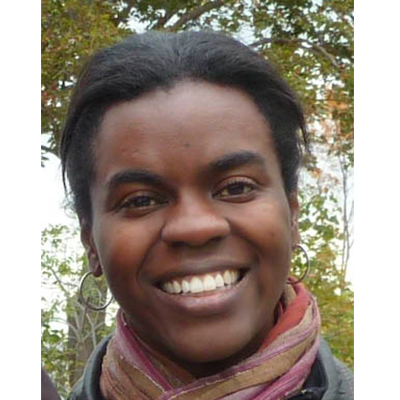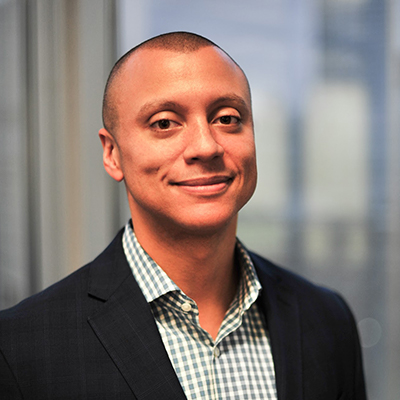Black History month in Laboratory Medicine

This Black History Month, we celebrate the contributions of Black scientists and spoke to members of the Laboratory Medicine & Pathobiology community in the Temerty Faculty of Medicine, to ask them what Black History month means to them.
Amina Adama
MSc student working in a Glaucoma research lab in LMP studying the molecular signature of a novel neuroprotective pathway within the retina
 As a Black Muslim woman from an immigrant family, I’ve faced several obstacles being in STEM in general. There’s an underrepresentation of people like me in the field I’m in and it’s something I’ve always been acutely aware of.
As a Black Muslim woman from an immigrant family, I’ve faced several obstacles being in STEM in general. There’s an underrepresentation of people like me in the field I’m in and it’s something I’ve always been acutely aware of.
Rather than trying to overcome obstacles placed in front of me that I’m not responsible for, I long ago decided to let my work speak for itself. Because ultimately, I can’t control how others will perceive me or treat me based on those perceptions. Over time I’ve found more individuals like myself and together we continue to showcase Black talent in our fields of work.
Black History month for me means helping to give a name to the Black faces behind science. Historically, achievements made by Black scientists have been disregarded, making it seem as if we too are not capable of great scientific discovery.
If you ask the average Canadian to name 10 Black scientists and their inventions we use today, they wouldn’t be able to tell you, and yet our daily life is made easier because of their intellect. This is an issue that extends back for centuries; that people like us are few and far between, which couldn’t be further from the truth.
It’s a time to look back at how far we’ve come and continue to give credit to the great people that brought us to where we are today.
My advice for those in LMP who may feel like they don’t belong
Even if you’re scared, take up space. Let yourself be seen and show those around you that you exist. If you don’t feel like you’re represented in your space then you owe it to yourself to at least show up, no matter how difficult it may seem.
One day, you’re going to look around your classroom and you won’t be the only black face. You’ll go to biology lectures and have professors that look like you…they exist and they’re going to be proud to see you following in their footsteps. And one day, you’ll make friends who like you understand what it means to be the only black kid in their class. They’ll understand the nuances that specifically affect you and together you’ll join a community of youth disproving the narrative set on them by simply existing.
- Read more about Amina in Inspiring the next generation of women in STEM: LMP students give their advice
Dr. Pauline Henry
Assistant Professor in LMP and Chief and Program Medical Director of the Department of Laboratory Medicine at Michael Garron Hospital (MGH)
 When I look around, I do feel quite alone. Blacks are, without a doubt, underrepresented in laboratory medicine.
When I look around, I do feel quite alone. Blacks are, without a doubt, underrepresented in laboratory medicine.
Support and mentorship of students early on is vital.
Through my past experiences as a mentor, I’ve been disappointed at how unaware students are of laboratory medicine professions. The COVID-19 pandemic may change that as it has certainly made the public more aware of the important role of laboratory medicine services in healthcare.
It is very important to provide opportunities to introduce young Black students to the laboratory medicine environment; collaboration between groups aligned with addressing the underrepresentation of Blacks in healthcare fields such as the Summer Mentorship Program at U of T and the Inclusion Alliance at Michael Garron Hospital can potentially help make these opportunities available to our students.
If we don’t engage and capture the interest of Black students at an early stage while also supporting their ability to acquire the tools and means to pursue higher education, then we will never properly address the “leaky pipeline” that loses Black students as they progress through the education system.
At a time when there has been an acute social awakening to the long-standing realities of systemic patterns of racial inequality affecting large institutions including health care, Black History Month is a reminder to recognize and celebrate individuals in the Black community who have made significant contributions to science despite the many obstacles they faced.
I am also reminded more than ever that I can play a role as a leader and mentor in advocating for fair and equal representation of Blacks in our field.
My advice for those in LMP who may feel like they don’t belong
You have gotten this far based on your skills and your hard work. You have already proven that you belong here. Don't doubt yourself, but don’t be afraid ask for help when you need it.
Dr. George Charames
Associate Professor in LMP and Director, and Head, of the Advanced Molecular Diagnostics Laboratory in Mount Sinai Hospital's Department of Pathology and Laboratory Medicine
 I've always been surrounded by people who have believed in me irrespective of race. However, my mother would always say to me that you have to do better than the next person to get the same, so I’ve worked incredibly hard to put myself in that position.
I've always been surrounded by people who have believed in me irrespective of race. However, my mother would always say to me that you have to do better than the next person to get the same, so I’ve worked incredibly hard to put myself in that position.
Racism is often more subtle these days so recognizing it and responding to it can be a challenge. I’ve been shocked to hear about some of the cases in the medical community, here in Toronto, where people have obviously been sidelined because of their race.
I love that Black History month is a celebration of the accomplishments and achievements by those that walked before and among us. Despite having always had a thumb on their heads they've been able to achieve and strive to become role models for the next generation.
It is also a time to help younger generations, who are not of color, recognize that we're all equals.
My advice for those in LMP who may feel like they don’t belong
Reach out to others. The worst thing you can do is keep quiet and keep things to yourself and assume it will get better. There are mentors and supports available, you are never really alone.



